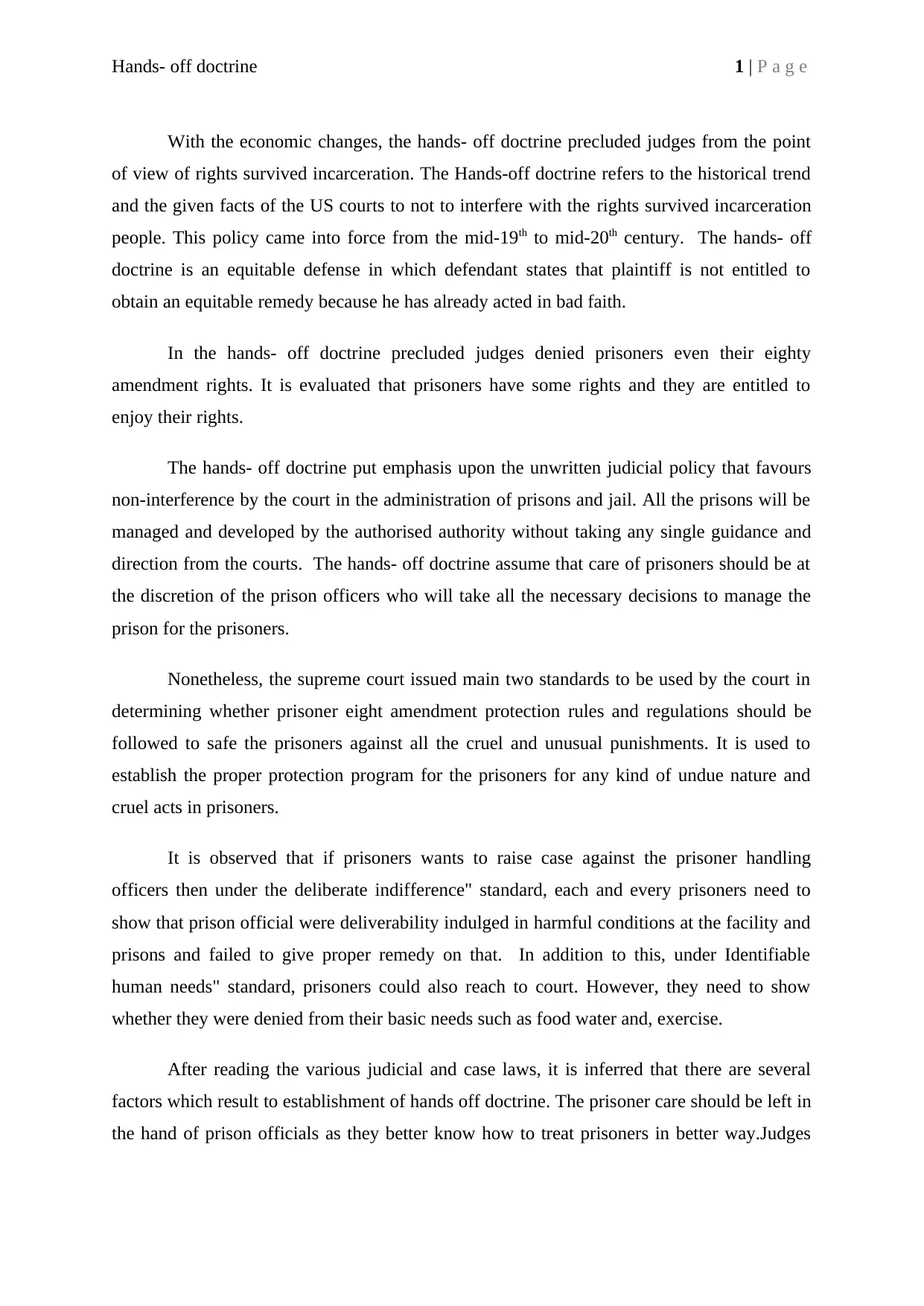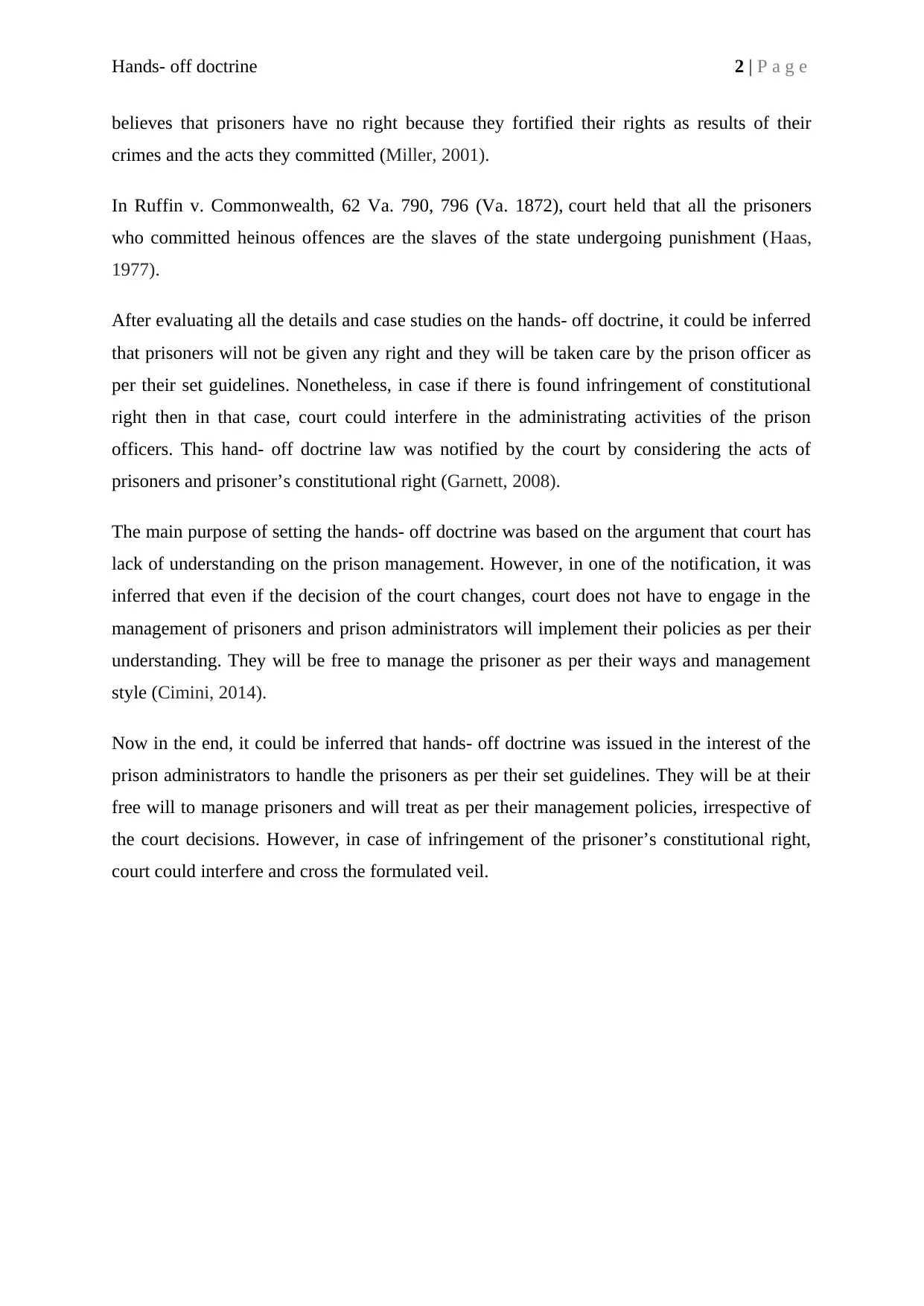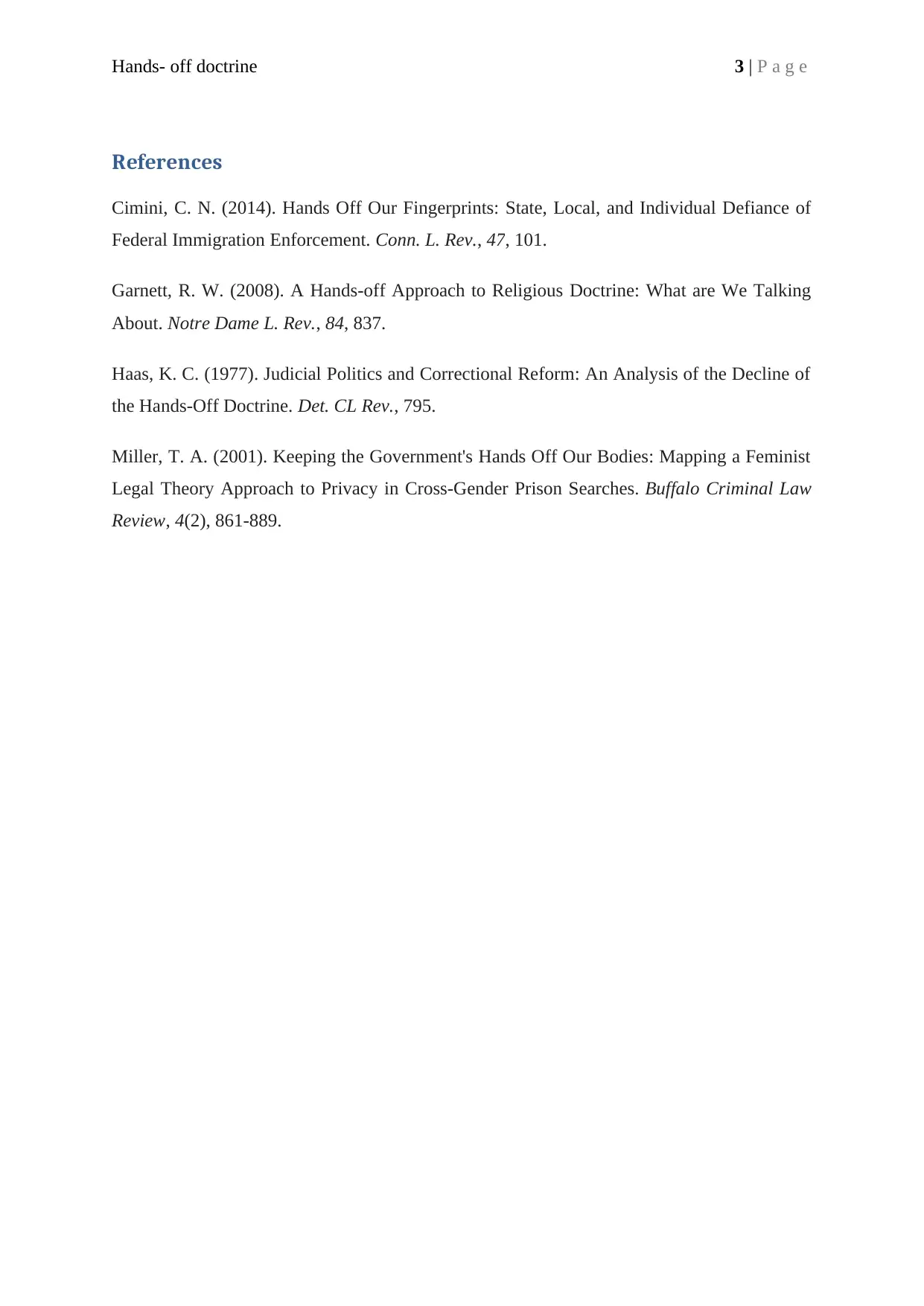The Hands-Off Doctrine: Examining Judicial Non-Interference in Prisons
VerifiedAdded on 2023/06/12
|4
|909
|435
Essay
AI Summary
This essay examines the historical "hands-off doctrine" in US courts, which historically prevented judges from intervening in prison administration and decisions regarding prisoner rights. The doctrine, prevalent from the mid-19th to mid-20th century, essentially allowed prison officials to manage prisons without judicial oversight, even concerning Eighth Amendment rights. The essay discusses the standards set by the Supreme Court for determining if prisoner rights were violated, such as the "deliberate indifference" and "identifiable human needs" standards. It also explores the rationale behind the doctrine, including the belief that prison officials are best suited to manage prisoners and that prisoners forfeit some rights due to their crimes. The essay concludes that while the hands-off doctrine aimed to give prison administrators autonomy, courts could intervene if constitutional rights were infringed.
1 out of 4





![[object Object]](/_next/static/media/star-bottom.7253800d.svg)